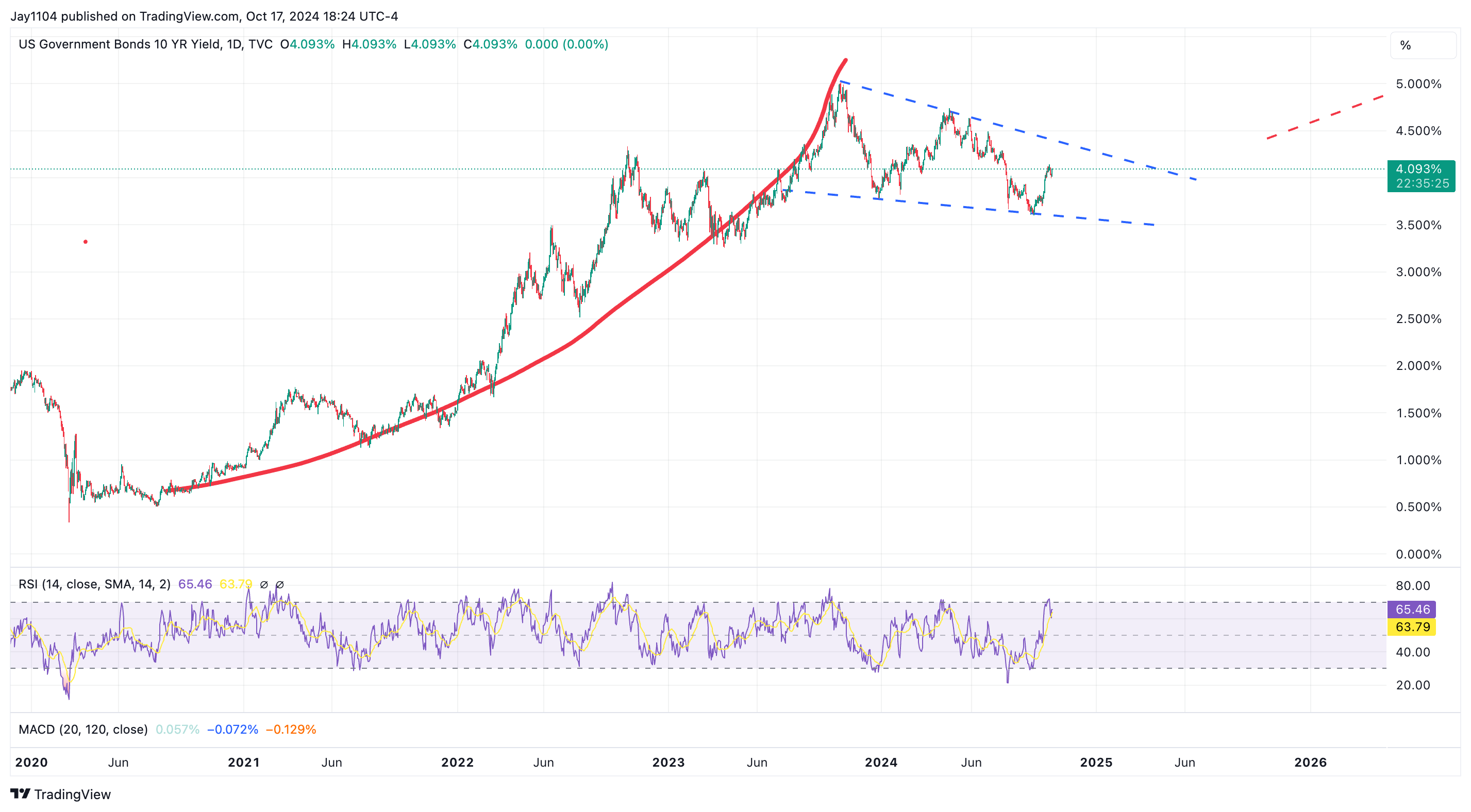Stocks started the day higher, but the market had given back all its gains by the day’s end. From a technical standpoint, it worked out better than I could have imagined.
The Nasdaq 100 managed to trade right up to the lower trend line in the rising wedge, and that’s where it stopped - a successful retest of the break lower.
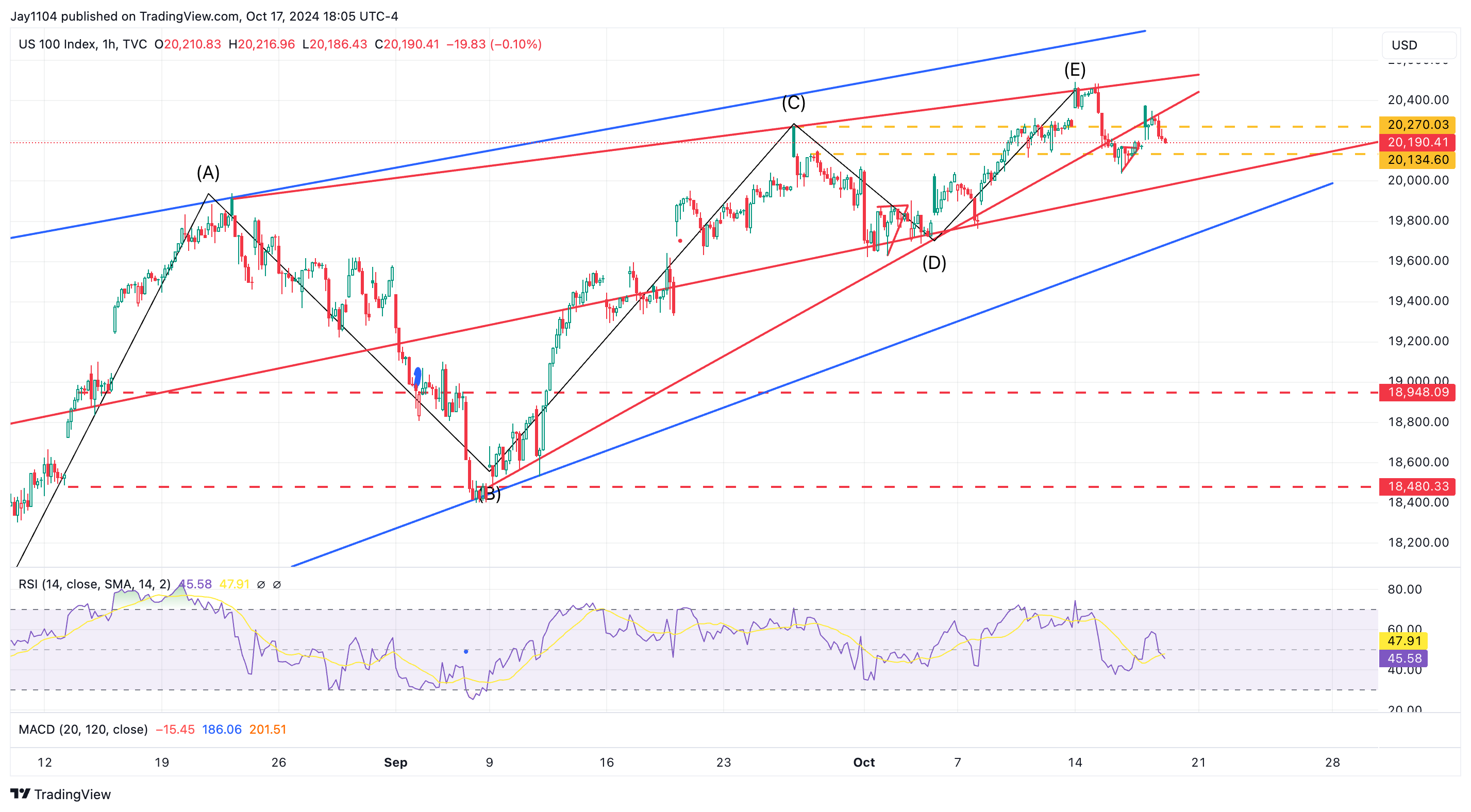
If you want to, you can add a 2B top now to our growing list of bearish technical indicators forming on the SPX.
That was formed yesterday when the SPX tried to move above the previous intraday highs and then closed lower and below the close on October 14.
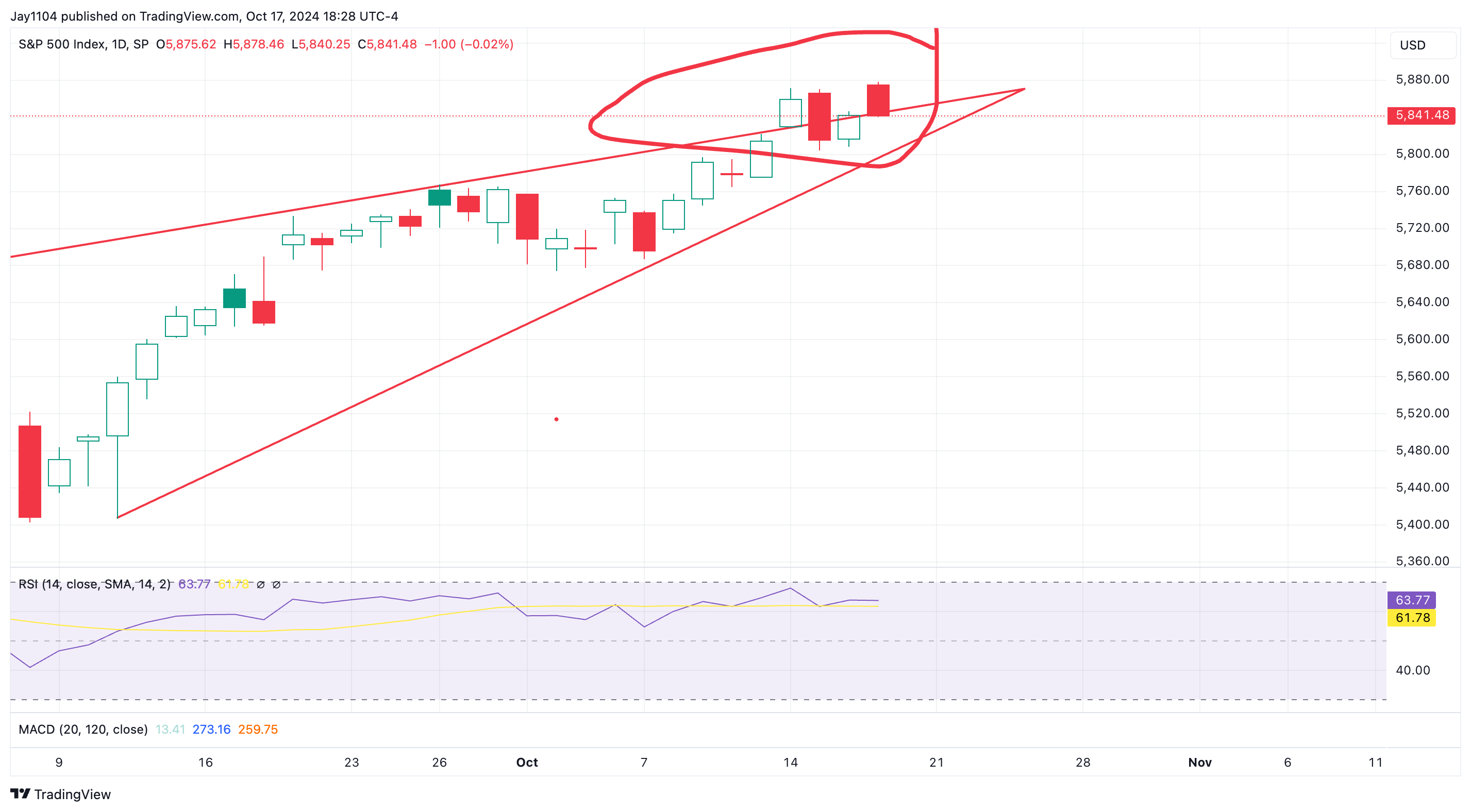
Of course, the bearish list includes such names as:
- The bearish engulfing pattern
- The bump-and-run pattern
- And the rising wedge.
I currently count four bearish patterns embedded in one chart. If we don’t turn lower here, I am going to start thinking the market is out to get me.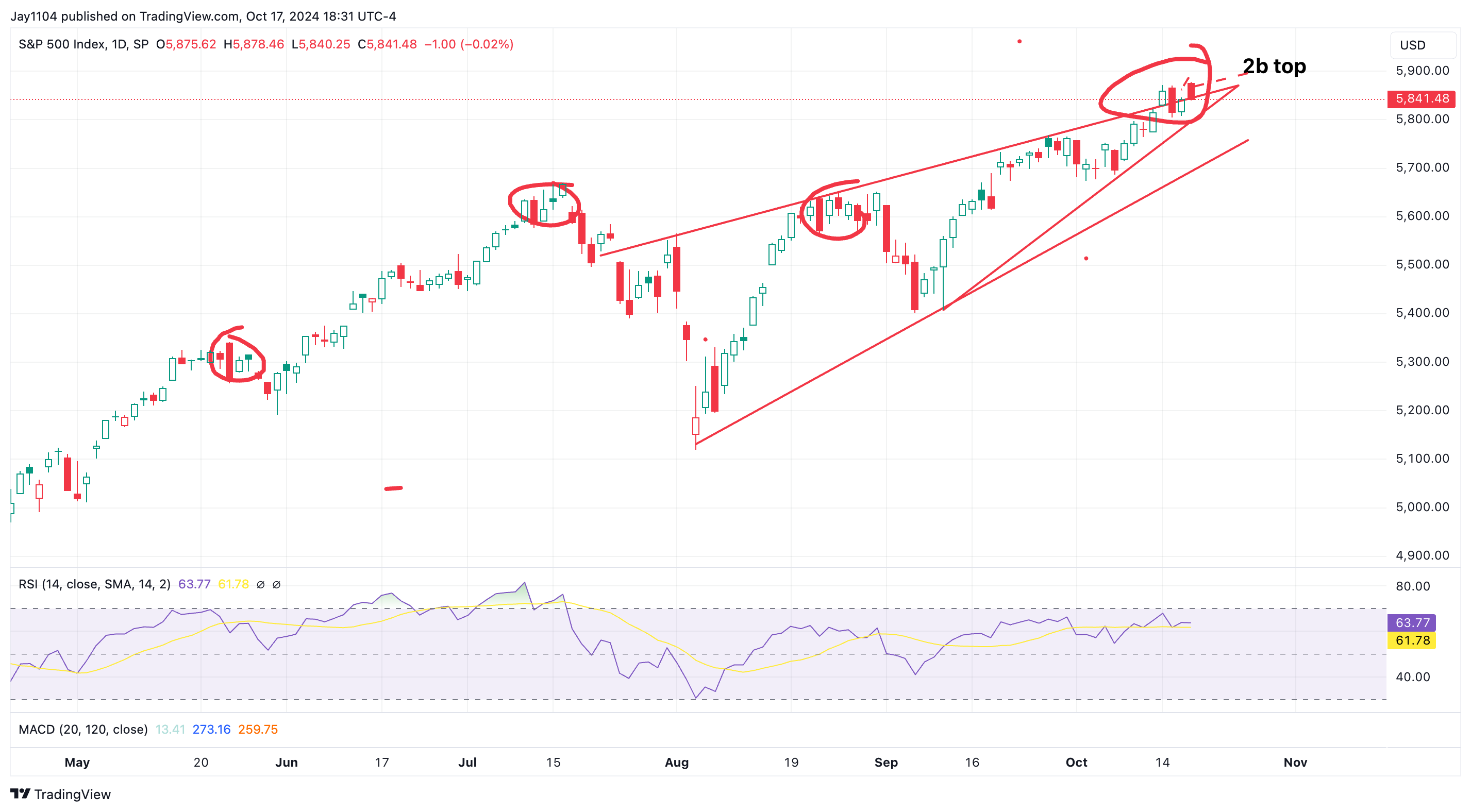
The SMH also moved back above its lower trend line and into the triangle yesterday, but more importantly, it couldn’t hold that level, closing back below the trend line instead.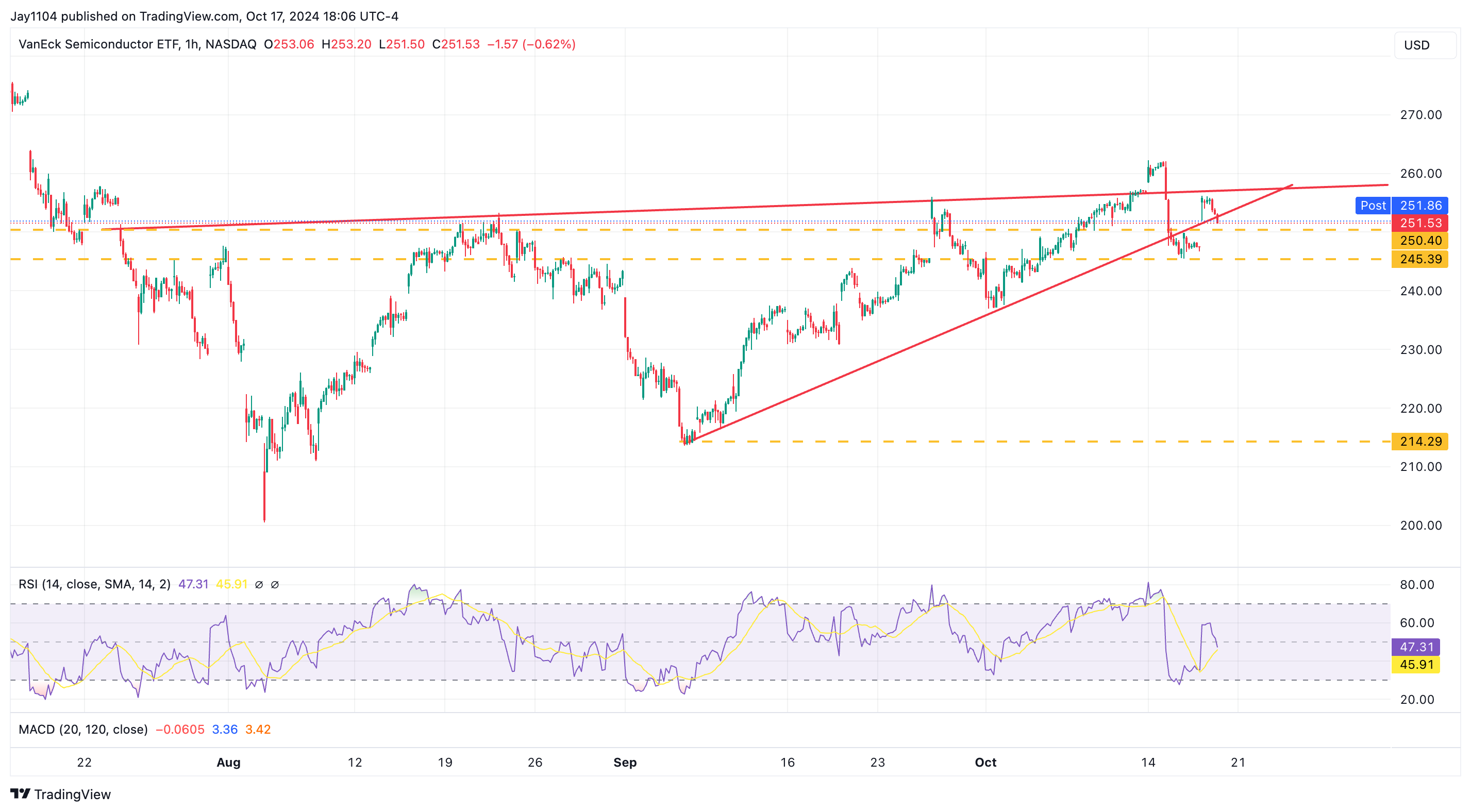
The market suddenly turned lower around 2 p.m., typically when the QYLD ETF buys back the call option it sold last month, pushing the market higher.
However, this time, the market seemed to move in the opposite direction of the trade we’ve come to expect—after all, we’ve been discussing this for months.
Perhaps all the attention on this trade led participants to change their approach, or another factor was at play.
Today, with OPEX (options expiration), QYLD will sell a new covered call, and historically, this call-selling activity has led to selling pressure in the market.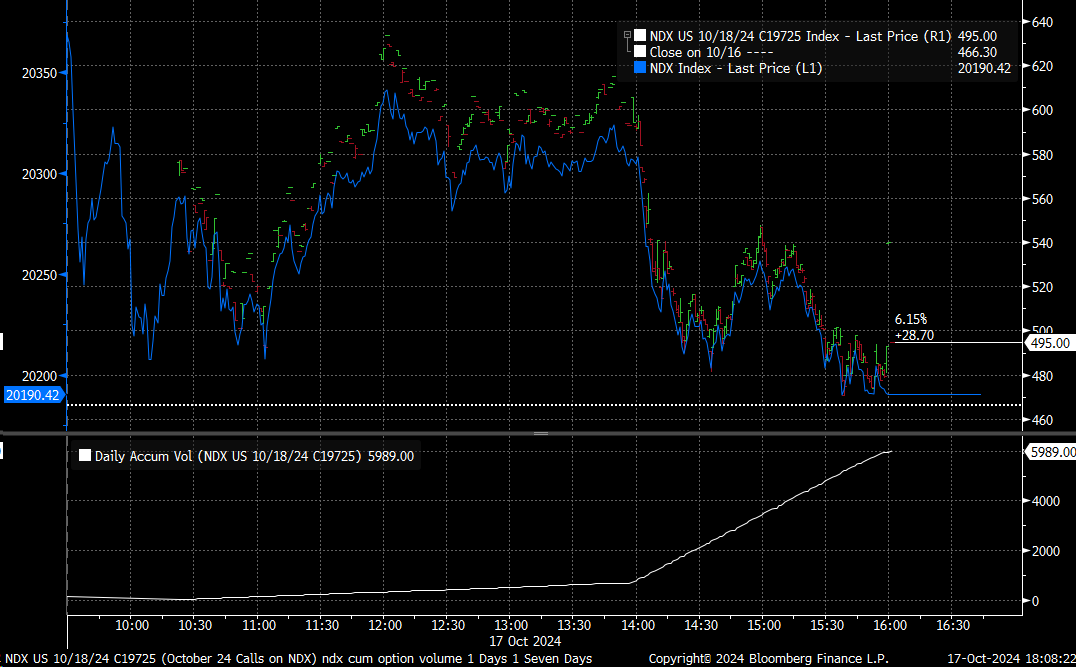
It could also have been that Nvidia (NASDAQ:NVDA) gamblers decided to switch from betting on calls to betting on puts around that time. That was when we saw the $139 10/18 put volume on the ASK surge above the Bid Volume.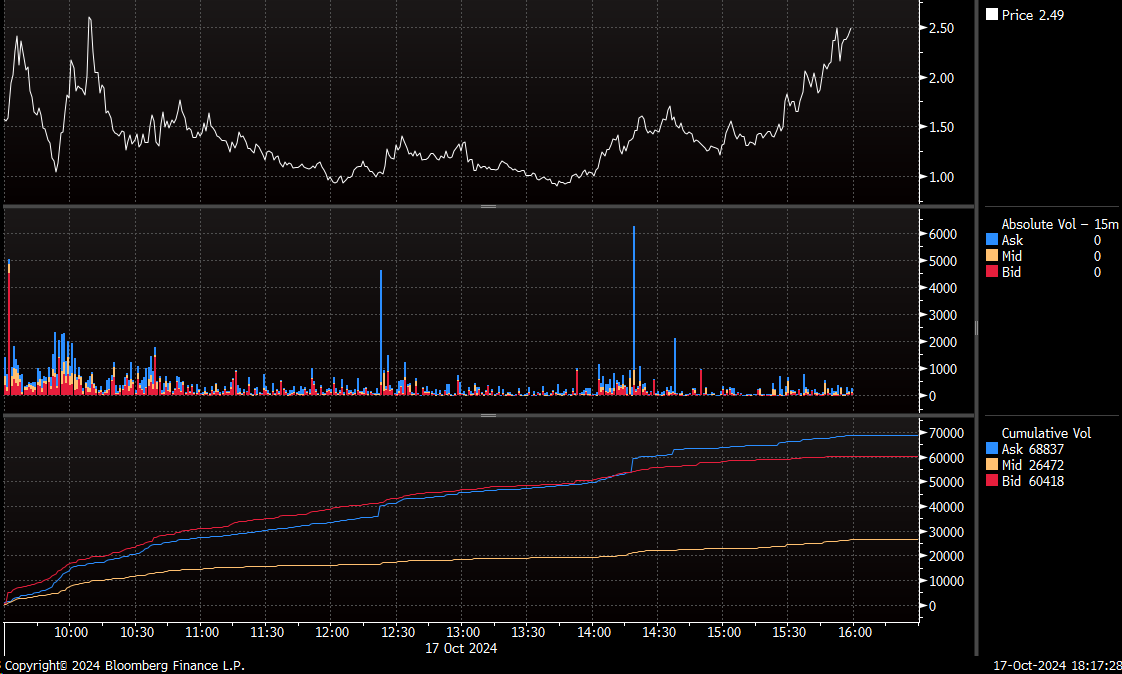
Perhaps there is a growing sense of frustration amongst the “rounders” that the stock can’t clear the $140 level despite TSM’s very “bullish” news on the day.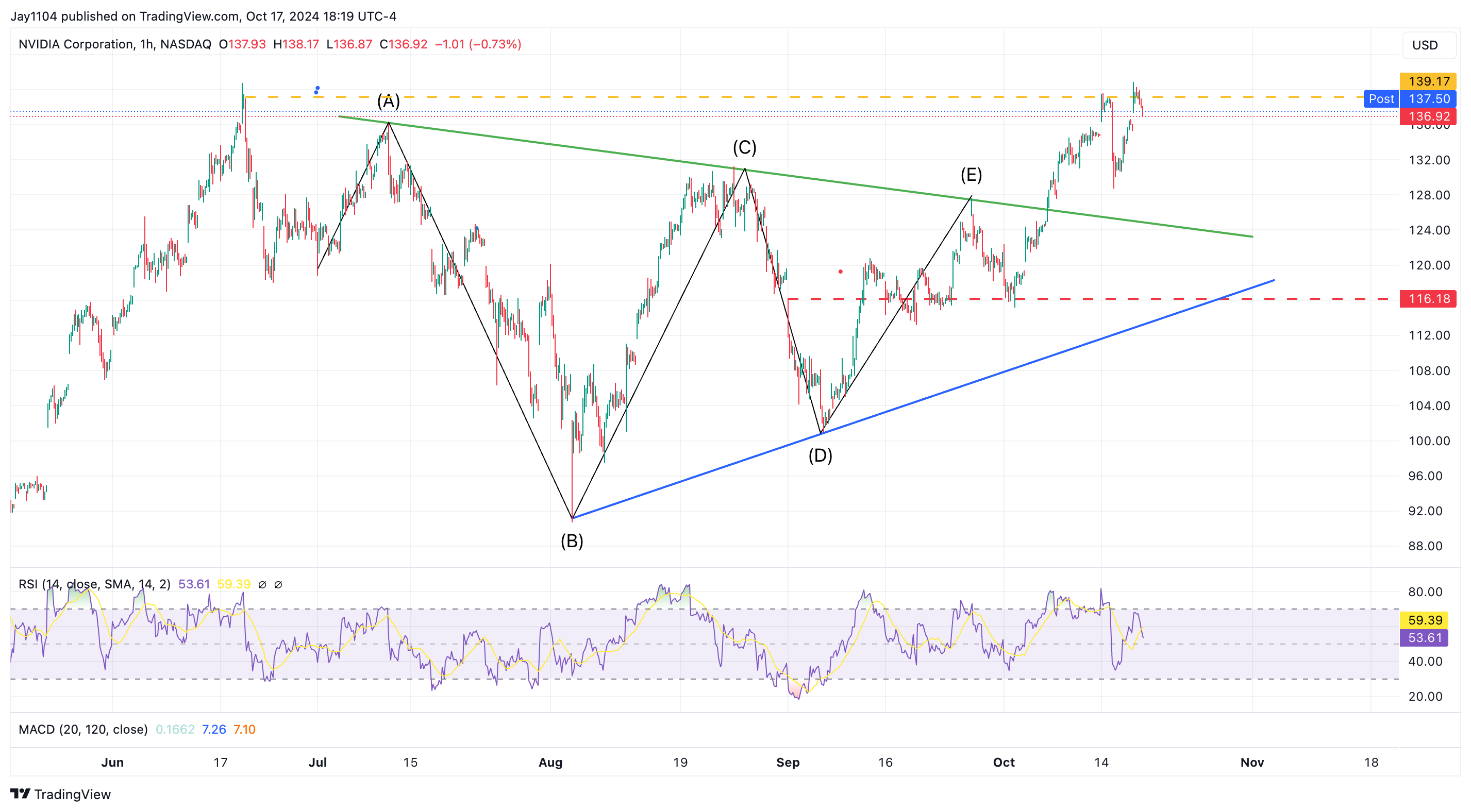
In the meantime, better-than-expected retail sales and initial jobless claims pushed the 10-year rate higher by almost eight bps to 4.09%.
The setup in the 10-year looks quite bullish, with what appears to be a bull pennant. It could be possible that the Fed’s rate cut finally woke the bond market up.